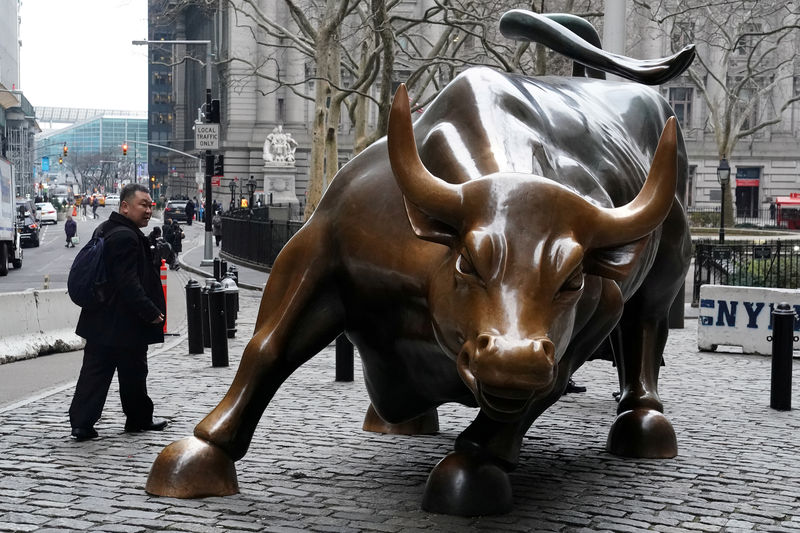NEW YORK (Reuters) - Year-end bonuses for most Wall Street workers are expected to decline this year compared to 2018 amid a drop in investment bank underwriting and trading activity, compensation firm Johnson Associates Inc said on Tuesday.
Overall, incentives at the end of this year, which include cash bonuses and equity awards, will decline by 5% from a year ago, ending a short streak since 2016 when payments had generally risen, according to the study.
Employees in equity sales and trading divisions will likely see the largest decline of 10-15% compared to last year, while investment banking underwriting and management staff may see theirs decline by 5-10%.
Fixed-income sales and trading and asset management employees can expect payouts to be flat to down 5%.
"All signs are pointing to an overall disappointing and lackluster year on Wall Street," said Alan Johnson, managing director of the firm that did the report.
Payments are pressured by a number of factors, including increased competition among investment banks, declines in equity trading and underwriting activity this year, and overall higher expenses, in part from technology investments and hiring.
"All the big banks are well run and solidly profitable, but the investment banking businesses continue to face extreme competition," Johnson said.
Johnson said he expected those factors - steep competition and higher expenses from technology and hiring in the tight U.S. labor market - to continue to weigh on firms in 2020. Those costs could lead to "selective layoffs and less hiring" next year, according to the study.
Meanwhile, employees at hedge funds, private equity firms and in advisory roles at investment banks can expect slightly higher payments. Workers in those divisions could expect payouts to be little changed to as much as 5% higher than in 2018.
